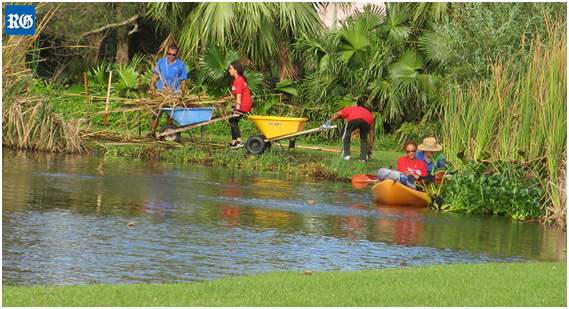Recent News
Top lionfish experts to help BermudaFriday, October 05, 2012
FRIDAY, OCT. 5: The Western Atlantic’s leading authorities on lionfish management are to run a two-day workshop with some of the island’s key environmental figures next week.
Story of the cahow goes international
Friday, October 05, 2012
FRIDAY, OCT. 5: The story of how Bermuda’s cahow was brought back from the brink of extinction will hit bookstores across the world next week.
Popular Zoological Society employee dies of cancer
Friday, September 28, 2012
Friends and family yesterday paid tribute to Bermuda Zoological Society’s educational boat captain Tim Hasselbring, who has died from cancer aged 38.
Young dad's death devastates family
Friday, September 28, 2012
FRIDAY, SEPT. 28: A heartbroken wife has spoken of her family’s devastating loss after the death of her husband from cancer.
'A visionary with an infectious enthusiasm for life'
Friday, September 28, 2012
FRIDAY, SEPT. 28: Tributes from Tim Hasselbring’s close friends and colleagues have poured in from across the island in the wake of his death.
About
GovernanceAbout Us
Newsletter
Latest News
Gift & Bookstore
Contact
General Inquiries
info@bzs.bm
Latest News
All the latest updates and news from the Bermuda Aquarium, Museum, and Zoo, one of Bermuda's leading visitor attractions!
Jonathan Bell
Published Jan 16, 2018 at 8:00 am (Updated Jan 16, 2018 at 6:41 am)

HSBC volunteers help a Bermuda Zoological society team clean up
Cloverdale Pond in Smith's (Photograph supplied)
Two ponds have been cleaned up courtesy of an island conservation programme.
Cloverdale Pond in Smith’s and Southampton’s Evan’s Pond, a refuge for endangered species, were improved through the Bermuda Zoological Society’s wetlands remediation programme.
The scheme, which became the HSBC global water programme for Bermuda in 2014, was designed to remove toxic petroleum compounds from ponds.
The build-up of the poisonous hydrocarbons is a threat to the island’s two endemic killifish species, as well as native diamondback terrapins, which are a protected species.
The compounds, which come from oil, water runoff and vehicle exhausts, can be broken down by bacteria when the pond sediments are aerated.
The two-year grant from HSBC allowed the proposal to be tested in the field.
Volunteers also took part, with help from the Department of Environment and Natural Resources.
The BZS said Cloverdale was chosen first because of its small size, its “known severe effects on wildlife” and the absence of protected species in the water.
Evan’s Pond was selected as the second test site because of its small population of killifish.
The ponds were divided into sections and aerated for six to eight hours a day with solar powered compressors.
Hydrocarbon levels saw a major reduction over the course of a year.
The next site for remediation is the South Pond at the Mid Ocean golf course, where the hatching of diamondback terrapins has been hampered by pollution.


